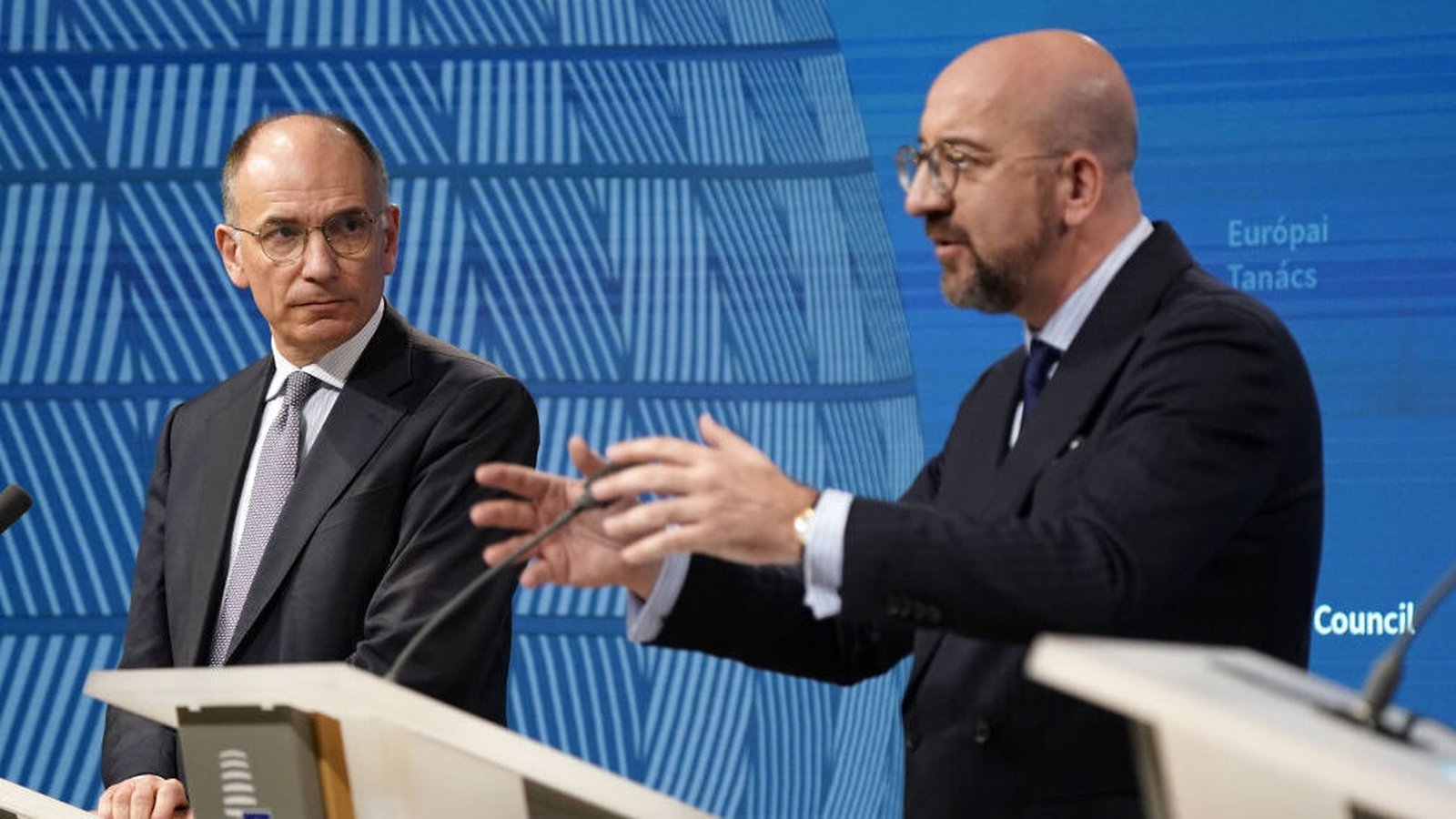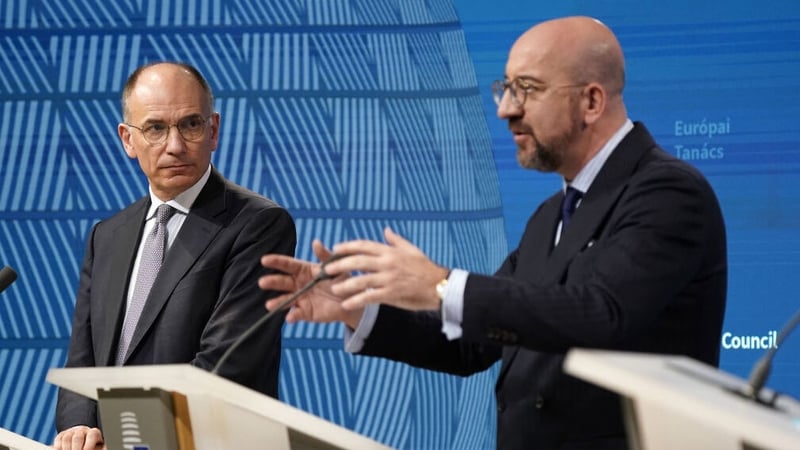Ireland opposed to harmonisation of corporate tax laws


Taoiseach Simon Harris has said that Ireland fully supports the integration of capital markets at European Union level, but cautioned that it should not involve the harmonisation of corporate tax or insolvency laws.
Developing a so-called Capital Markets Union (CMU) is one element of a revamp of the single market recommended by former Italian prime minister Encrico Letta, who presented a report to EU leaders at their summit in Brussels.
Addressing fellow leaders, Mr Harris welcomed the report and stressed the importance of maintaining momentum on competitiveness at EU level, especially in helping small and medium-sized enterprises (SMEs) fully exploit the single market.
Earlier, speaking to reporters, the Taoiseach said he would use the summit to promote Ireland’s financial services sector.
“This is a sector that supports employment of almost 60,000 people, but it’s also a sector that provides so many opportunities for young people in apprenticeships right across the country, and also has a very significant regional presence in Ireland,” he said.
Europe has a fragmented and underdeveloped retail capital market compared to the United States with national capitals agreeing that a long-running effort to boost the sector be given fresh momentum.
As envisaged, the CMU would develop a deeper cross-border retail fund market that could generate much bigger funds which, in turn, could be further invested in key sectors, such as renewable energy and carbon reduction.
Officials say that some €33 trillion is the amount of untapped money in the EU which is sitting in current and savings accounts, and which could be invested productively if a CMU was in place.
However, there are strong differences between member states about how centralised such a CMU should be.
Ahead of this week’s summit, a large number of smaller member states – including Ireland – resisted a push by France and Germany to centralise supervision of the new CMU at EU level.
An early draft of the summit communique spoke of giving financial markets supervisor, the Paris-based ESMA, direct oversight over “the most systemic relevant cross-border capital and financial market actors”.
However, the Irish Government believes that concentrating supervisory powers in Paris or Frankfurt would only lead to a shift in capital funds out of financial services centres such as Dublin.
The Government, and other member states, are concerned that a CMU would lead to temptations among EU institutions to harmonise corporate tax and insolvency rules.
Ahead of the meeting, Mr Harris said: “We’re not in the business of wishing to see any harmonization in relation to our corporate tax laws.
“There are very important questions about the supervisory mechanisms, and how that balance is gotten right, and I’ll be articulating those views with a number of member states today.”
‘Last opportunity’ for reform – Letta
Mr Letta said the single market is underperforming relative to the United States and China and that to catch up Europe must deepen integration in services, energy, research and development and financial markets.
He warned leaders that they cannot consign the 147-page report to a drawer and hope for the best.
“This is a last opportunity and last window that is open,” Mr Letta told a news conference.
His report said the rise of geopolitical tensions and protectionism threaten EU economic security and undermine its push into technologies from artificial intelligence to clean technology.
The EU faces new challenges from US subsidies drawing in investment and China’s domination of new technology supply chains, on which it is dependent, it added.
Belgian Prime Minister Alexander De Croo, whose country holds the six-month EU presidency, said the report highlighted the right elements.
“Now comes the next step and the next step is to put it into practice,” he told reporters.
Lobby group BusinessEurope said it agreed with the report’s key message that the single market needed a reboot and Mr Letta’s call for simpler EU rules.
Former European Central Bank chief Mario Draghi, who will deliver a separate report on EU competitiveness later this year, said in a speech earlier this week that the EU needed consolidation and collaboration to create the scale to compete.
He also called for investment in common goods such as energy networks and a comprehensive strategy on securing essential resources.
Highlighting the challenge, non-ferrous metals association Eurometaux said the bloc would need to open at least ten new mines, 15 processing plants and 15 recycling plants by 2030 to meet its critical mineral goals.
Additional reporting AFP





